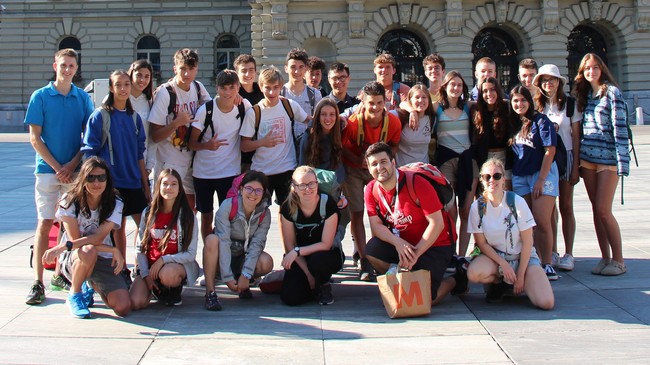
Authorities destroy copies of Tinner files

The justice ministry has implemented the cabinet’s decision and destroyed copies of documents that the Federal Prosecutor’s office found in its archives at the end of 2008 concerning a family convicted of nuclear smuggling.
The files comprise 58 pages of information on the manufacture of nuclear weapons, together with other documents with information on uranium enrichment. The originals were destroyed with other documents back in 2007 on instructions from the cabinet.
In 2009, the cabinet made the copies with information on the manufacture of nuclear weapons available to the Federal Prosecutor’s office, having first consulted with specialists from the International Atomic Energy Agency (IAEA), and replaced the sensitive sections with filler text.
The prosecution authorities were also allowed access to the other copies. The cabinet decided to delay the destruction of the document copies until the final judgments had been issued in the Tinner case.
The Federal Criminal Court notified the justice ministry last month that the judgments had become legally binding. With the exception of a small number of documents on uranium enrichment that were handed over to the IAEA at its request, all the copies were destroyed under the supervision of IAEA representatives.
Nuclear network
In September 2012, the Federal Criminal Court accepted a plea bargain in the case of Swiss engineer Friedrich Tinner and his two sons, ending a long-running probe into the family, who were involved in a nuclear smuggling ring. All the defendants are now free, but they will have to pay fines and legal costs.
In its ruling, the Bellinzona court passed a suspended sentence of two years on the father and sentences of 50 and 41 months on his sons Urs and Marco, respectively, for violating federal law on war materiel exports. Given the time the sons have already spent in detention, they will not have to return to prison.
The family were part of a network set up by Abdul Qadeer Khan, known as the “father of Pakistan’s nuclear bomb”, which also supplied technical support to the nuclear programmes of North Korea, Iran, Iraq and Libya in the 1990s and early 2000s.
Despite the length of time the case has taken, many of the details concerning the Tinners’ involvement will never be known.

In compliance with the JTI standards
More: SWI swissinfo.ch certified by the Journalism Trust Initiative
















![The four-metre-long painting "Sonntag der Bergbauern" [Sunday of the Mountain Farmers, 1923-24/26] had to be removed by a crane from the German Chancellery in Berlin for the exhibition in Bern.](https://www.swissinfo.ch/content/wp-content/uploads/sites/13/2025/12/01_Pressebild_KirchnerxKirchner.jpg?ver=cb688ed5)














You can find an overview of ongoing debates with our journalists here . Please join us!
If you want to start a conversation about a topic raised in this article or want to report factual errors, email us at english@swissinfo.ch.